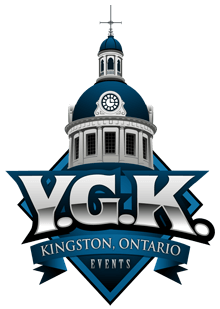
The Canadian gambling industry is growing rapidly; in 2021 alone, casinos brought in a combined $2.64 billion in revenue. The online branch was responsible for just under half, at $1.2 billion. Most analysts agree that this figure will likely double within the decade.
However, there is one limiting factor to Canadians looking to gamble online: the individual provincial governments in the country. Canada has very specific legislation related to gambling. Every province has the authority to grant (or deny) gambling licenses, meaning the industry is tightly regulated.
Should you be interested in gambling online or perhaps even investing in a particular casino, it is crucial that you understand how each province works. Legislation, you see, goes a long way in determining the range of options available to the consumer.
Ontario
For Ontarians, the situation changed in 2022. The province officially launched a regulated online gambling market, effectively making it legal for citizens to place bets online.
This has been the result of legal wrangling, lobbying from the industry, and pressure from consumers. After three years of work on legislation, the government now allows for the granting of licenses to individual online gambling companies.
This has resulted in a wide range of choices for Ontarians, with some of the biggest players worldwide getting involved and looking to cater to a province with a long history (and demand!) for gambling options.
Quebec
While traditionally known for its gambling, the government is actually looking to restrict options, by restricting online gambling to sites licensed by Loto-Quebec. At present, citizens can gamble pretty much anywhere without an issue.
Nova Scotia
Almost 90% of Nova Scotians play a game of chance of some variety, spending over $600 per person annually. However, the province does not have a mature online market, with residents having to go offshore.
New Brunswick
Just like in Nova Scotia, residents are allowed to gamble legally online. However, the province does not have its own framework. There have been talks, however, that people will soon be able to gamble on an official New Brunswick gambling website.
Manitoba
In 2013, this western province launched its own iGaming website, giving residents the option of gambling with a government-run online casino. PlayNow Manitoba is the only ‘official’ option for consumers, but they are also able to legally gamble with offshore websites.
British Columbia
Undoubtedly one of the more mature markets in Canada, British Columbia has a storied reputation as a center for gambling. In 2004 it became an innovator in the gambling industry by launching its own online gambling operation. Players can choose from bingo, the lottery, sports betting, and traditional casino games like blackjack or roulette.
Prince Edward Island and Saskatchewan
The smallest province in the country, Prince Edward Island has had its own Lotteries Commission since 1976. The province does not have high online gambling rates compared to others in Canada, and it also does not have a strong tradition in games of chance. Perhaps unsurprisingly, it does not run its own gambling operation. Residents looking to gamble online must do so with offshore websites.
Similarly, Saskatchewan does not offer residents its own government-backed gambling website, but residents are free to gamble where their custom is accepted.
Alberta
The Prairie Province has a long and established tradition in both casino and sports betting. The province relies on 4% of its budget from gambling tax revenue, highlighting just how popular it is. While the province does not have a license framework, consumers have the freedom to go offshore.
Newfoundland and Labrador
This province is unique in that land-based casinos are not legal, except for First Nations operations. This means that for many residents, online gambling is their only alternative. There are no ‘local’ options, but there are no barriers to gambling with international operators.
Yukon, Nunavut, and the Northwest Territories
Not provinces, but worth mentioning nonetheless. With low population figures and small budgets, these territories do not provide gambling licenses. However, offshore options are 100% legal.
Offshore Sites
The public secret that most Canadian gamblers already know about is that offshore sites are legal options. If the province does not provide a local option, it is not illegal to gamble elsewhere. For example, Canadians can place bets on British sites such as William Hill or Ladbrokes without worrying about a knock on the door!
It is clear that the Canadian government is beginning to see that regulation is the better option against a blanket ban on gambling. Considering it is legal to gamble offshore, provincial governments are seeing a lot of potential tax revenue going elsewhere. Furthermore, regulation allows the government to protect consumers, ensuring they can access safe and reliable providers.
The Times They Are A-Changin’
Of course, by the time you read this guide, it may already be outdated. The Canadian gambling scene is going through a lot of changes, just like in the United States. Evidence of this is Bill C-218, for instance, which legalized the betting on single sports games. It’s clear that the government is looking more favorably toward providing citizens with legal gambling options.
Most provinces are also starting to see both the financial potential and the benefits of a regulated gambling market with licensed providers, protecting consumers. Ontario is arguably leading the market with its recently launched regulated license framework but look for other provinces to follow suit in the coming years.
